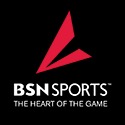For years, youth sports have been one of the most powerful forces shaping kids’ growth, confidence, and community. Yet despite its explosive growth, no one has truly captured what’s happening behind the scenes until now. BSN SPORTS has released the Club Sports Index, a first-of-its-kind national study offering a clear look at what drives today’s athletes, parents, and coaches, and how youth club sports continue to evolve.
Conducted in partnership with Talker Research, the survey gathered insights from more than 4,000 participants. The findings show how dedication, identity, and community continue to define youth club sports across the U.S.
From Recreation to Dedication
Nearly three-quarters of respondents (72%) believe youth club sports now feel more “professional” than recreational, and 85% of coaches say they’ve witnessed this shift firsthand. Two-thirds of parents (68%) consider their child above average, and roughly one in six believe they’re raising the next pro athlete. Yet nearly nine in ten (90%) view the time and money spent on sports as an investment in their child’s future, with coaches (96%) and parents (91%) especially likely to see it that way.
In fact, 92% of all respondents said they would encourage young athletes to pursue sports with support even higher among coaches (96%) and athletes (94%).
As club sports have grown, so have the pressures on directors and coaches to deliver professional, reliable experiences. That’s where BSN SPORTS’ Club Direct comes in, which is a dedicated program built to simplify gear, uniform, and logistics challenges so coaches can focus on athlete development. Club Direct combines local expertise, national scale, and exclusive brand partnerships to ensure uniforms arrive on time, streamline ordering, and provide digital tools that make communication and direct-to-player delivery faster and more efficient.
A Second Home in the Sports Club
Athletes spend about nine hours a week training or competing, while parents are involved in roughly 72% of their child’s sports activities. In fact, 27% say their child needs them nearly every step of the way. For many families, clubs have become a second home: eight in ten parents agree their child’s club feels like one. The average athlete buys new equipment three times a year, spending about $313 annually, and one in nine spends more than $500. For 64% of parents, jerseys and gear represent pride, progress, and belonging.
The Power of Sports Beyond the Scoreboard
Sports play a critical role in building life skills. Parents say sports build confidence (58%), athletes report improved mental health (58%), and coaches see greater teamwork and sportsmanship (51%). Participation continues to grow, especially in basketball (44%), soccer (40%), football (35%), baseball (25%), and volleyball (22%). Basketball also leads in encouraging female participation (42%), followed by soccer, volleyball, and softball.
When asked about what success means to them, 35% of respondents pointed to personal goals or passion for their sport, while 31% cited social media pressure and public recognition, and another 31% mentioned expectations from parents or family.
Balancing Ambition and Well-Being
Despite the benefits, burnout remains a concern. Athletes and parents experience physical or mental exhaustion about twice a year, and coaches observe it three times annually. Respondents believe the next generation of club sports should emphasize character and leadership development (42%), balance and mental health (36%), and affordability and accessibility (34%). Athletes in particular also hope to see improvements in their fitness (39%) and mental health (37%) in the year ahead, while parents and coaches prioritize confidence and motivation.
That’s why programs like BSN SPORTS’ Club Direct are designed not just to deliver products, but to support the full ecosystem of youth sports — helping clubs grow sustainably, communicate efficiently, and create positive experiences that build confidence and community.
The Collective Effort Behind Every Athlete
Nearly half of respondents (48%) believe sideline and parent behavior is mostly positive, signaling a more supportive culture.
About the Research
The Club Sports Index surveyed 2,000 parents, 2,000 athletes, and 150 club sport owners across the U.S. between October 14–27, 2025. The study was commissioned by BSN SPORTS and conducted by Talker Research.

